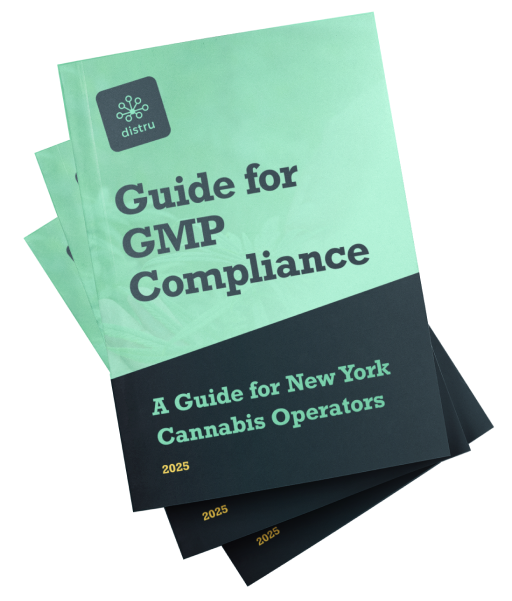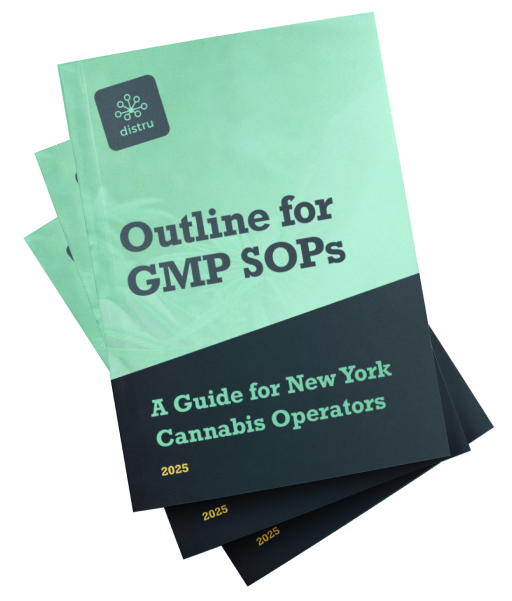Have you been following the exciting developments in New York's cannabis industry? One of the most crucial aspects of this new legal market is the concept of social equity. The New York State Office of Cannabis Management (OCM) is at the forefront of ensuring that communities most affected by the war on drugs have a fair chance to participate and succeed in this emerging industry. In this article, we'll explore what social equity means, how the OCM is implementing it, and why it's so important for the future of cannabis in New York.

Understanding Social and Economic Equity in New York's Cannabis Industry
What exactly is social equity in the context of cannabis? Essentially, it's about acknowledging that certain communities, particularly Black and Hispanic neighborhoods, were disproportionately targeted and negatively impacted by cannabis prohibition. Despite similar usage rates across racial and ethnic groups, these communities faced significantly higher rates of arrests, convictions, and the subsequent social and economic consequences.
When New York legalized adult-use cannabis, lawmakers recognized the need to address these disparities head-on. They tasked the OCM with creating policies and programs to support businesses owned by minorities, women, distressed farmers, service-disabled veterans, and individuals from communities most harmed by the war on drugs. The goal is to ensure that everyone has an equal opportunity to participate and thrive in this new market.
.png)
Who Qualifies for NYS OCM Social Equity Programs?
Now, let's talk about who can benefit from the OCM's social equity initiatives. The agency has identified several key groups:
- Communities Disproportionately Impacted (CDIs): These are specific geographic areas that experienced a disproportionately high number of cannabis-related arrests and convictions. The OCM will establish guidelines to determine which areas qualify as CDIs and how individuals can prove their eligibility based on their connection to these communities. (OCM Social and Economic Equity)
- Minority-Owned Businesses: To qualify, a business must be at least 51% owned by individuals from underrepresented racial or ethnic groups, such as Black, Hispanic, Native American, or Asian/Pacific Islander communities. The ownership must be genuine, and the business must be authorized to operate in New York. (NY Cannabis Law Section 87)
- Women-Owned Businesses: Similar to minority-owned businesses, eligibility requires at least 51% ownership by women who are U.S. citizens or permanent residents. The women owners must have control over day-to-day operations, and the business must be small and authorized to conduct business in New York.
- Distressed Farmers: This category includes New York farmers who have faced financial hardship, are at risk of losing their land, or have been disproportionately impacted by low commodity prices, natural disasters, or other factors. The OCM will establish specific criteria for determining eligibility.
- Service-Disabled Veterans: Veterans with disabilities connected to their military service are eligible for social equity programs. The OCM will work with the New York State Division of Veterans' Services to verify applicants' status.
If you fall into one of these categories and want to enter the cannabis industry, you may be eligible for significant support and benefits through the OCM's social equity programs.

Key Components of the NYS OCM Social Equity Program
So, what kind of assistance can social equity applicants expect? The OCM has developed a comprehensive suite of programs and resources, including:
Conditional Adult-Use Retail Dispensary (CAURD) Licenses
These special retail licenses are reserved for individuals with previous cannabis convictions (or their family members) and nonprofit organizations that serve communities impacted by the war on drugs. CAURD licensees will have the opportunity to open some of New York's first legal dispensaries, providing a vital pathway into the industry for those most affected by prohibition.
Social Equity Cannabis Investment Fund
This $200 million public-private fund will provide much-needed capital to help finance the startup costs for social equity businesses. The state has committed $50 million to the fund, which will be repaid through tax revenue generated by the adult-use cannabis industry. Access to capital is a critical component of ensuring the success of social equity entrepreneurs.
Business Support and Incubation Programs
The OCM will establish a network of incubators and business support services across the state to provide social equity applicants with the resources and guidance they need to navigate the complexities of the cannabis industry. These programs will offer a range of services, from business plan development and financial planning to assistance with regulatory compliance and marketing strategies.

Training and Mentorship Opportunities
Recognizing that many social equity applicants may be first-time entrepreneurs, the OCM will facilitate training and mentorship programs to help them acquire the skills and knowledge necessary to succeed in the cannabis industry. These programs will cover topics such as cultivation best practices, product development, retail operations, and leadership development.
Financial Assistance and Fee Reductions
Social equity applicants may be eligible for a range of financial assistance programs, including reduced or waived application and licensing fees, which can be a significant barrier to entry for many entrepreneurs. Additionally, the OCM will explore other financial support mechanisms, such as low-interest loans and grants, to further assist social equity businesses in getting off the ground.
By offering this comprehensive suite of support services and resources, the OCM aims to create a more level playing field for social equity entrepreneurs, ensuring that they have the tools, knowledge, and financial backing necessary to compete and thrive in New York's adult-use cannabis market. These programs represent a significant investment in the future of the industry and a commitment to building an equitable and inclusive cannabis economy that benefits all New Yorkers, particularly those most harmed by the failed war on drugs.
.png)
The Historical Context and Need for Social Equity
You might be wondering why such extensive social equity measures are necessary. The answer lies in the impact of the war on drugs. Over the past few decades, New York has seen more than 1.3 million arrests for cannabis offenses, with a staggering 80% of those arrested being either Black or Hispanic. This is vastly disproportionate to their share of the population and cannabis usage rates.
The consequences of these arrests and convictions extend far beyond the criminal justice system. Individuals have lost jobs, housing, educational opportunities, and more. The OCM estimates that over $31 billion in lifetime earnings have been lost due to cannabis convictions, primarily in these affected communities. This is not only profoundly unjust but also represents a significant economic blow.
Social equity programs, therefore, serve two critical purposes. First, they aim to repair some of the harm caused by decades of disproportionate enforcement. Second, they ensure that the people most negatively impacted by prohibition have a meaningful opportunity to participate in and benefit from the legal cannabis industry.
Benefits of the Social Equity Program
The potential benefits of a well-executed social equity program are enormous:
- Entrepreneurship Opportunities: Social equity initiatives provide a pathway for individuals who have faced systemic barriers and discrimination to become business owners in a rapidly growing industry.
- Generational Wealth Building: By supporting the success of social equity businesses, these programs enable entrepreneurs from impacted communities to create jobs, generate wealth, and build assets that can benefit their families and neighborhoods for generations to come.
- Industry Diversity and Representation: A more diverse cannabis industry, with meaningful participation from communities most harmed by prohibition, will be more innovative, responsive to consumer needs, and socially responsible.
- Community Reinvestment: As social equity businesses thrive, they can help drive economic empowerment and revitalization in neighborhoods that have long suffered from underinvestment and the consequences of the war on drugs.
- Restorative Justice: By prioritizing opportunities for those most harmed by cannabis prohibition, social equity programs represent a significant step toward repairing past harms and promoting a more just and equitable society.
In short, social equity is not a bonus or an afterthought – it is essential to building an industry that benefits all New Yorkers.

Challenges for Social Equity in Cannabis
While the OCM's social equity initiatives are groundbreaking, it's essential to recognize the challenges that entrepreneurs will still face:
- Access to Capital: Despite the creation of the Social Equity Cannabis Investment Fund, many applicants will likely struggle to secure the financing needed to launch and scale their businesses in an industry that remains federally illegal.
- Complexity and Compliance: The cannabis industry is highly regulated, with complex rules governing every aspect of the business. Navigating this landscape can be daunting for first-time entrepreneurs, particularly those without extensive business experience.
- Stigma and NIMBY Attitudes: Social equity businesses may face additional hurdles in the form of community resistance, as stigma surrounding cannabis and those with prior convictions can fuel "Not In My Backyard" (NIMBY) sentiments.
- Competition from the Legacy Market: As legal businesses, social equity licensees must contend with competition from unlicensed operators who do not face the same regulatory burdens and costs.
Despite these challenges, the OCM's robust social equity program is designed to give entrepreneurs the best possible chance of overcoming barriers and building successful businesses.

Looking Ahead: The Future of Cannabis Equity in New York
As New York's legal cannabis market takes shape, the OCM remains committed to refining and expanding its social equity initiatives. Key priorities for the future include:
- Continuous Improvement: The OCM will gather feedback from social equity applicants and licensees to identify areas for improvement and ensure that programs are responsive to the needs of entrepreneurs.
- Expanded Access to Capital: Securing additional funding sources and low-cost financing options will be crucial to the long-term success of social equity businesses.
- Tailored Training and Support: Developing incubator and business support programs that are specifically tailored to the unique needs of social equity entrepreneurs will help them navigate the complexities of the industry and build sustainable businesses.
- Workforce Development: Supporting workforce development initiatives that focus on creating diverse talent pipelines will ensure that the cannabis industry provides opportunities for individuals from impacted communities at all levels.
- Ongoing Community Engagement: Engaging with communities to address concerns, combat stigma, and build support for social equity businesses will be an ongoing priority.
Whether you are a prospective cannabis entrepreneur, a policymaker, an advocate, or simply a concerned citizen, engaging with the OCM's social equity initiatives is an opportunity to help shape a more just and equitable future for New York. By working together to break down barriers, challenge stereotypes, and support diverse businesses, we can ensure that the promise of cannabis legalization is truly realized for all.







